Your pet’s health journey doesn’t start with symptoms—it starts with prevention. At Rustebakke Veterinary Service, we believe the foundation of a long, healthy life for your pet is built on regular wellness exams. These visits aren’t just routine check-ins; they’re powerful tools for early disease detection, health monitoring, and personalized care at every life stage.
In this guide, we’ll walk you through what wellness exams involve, why they matter, and how they can significantly improve your pet’s quality of life.
What Is a Pet Wellness Exam?
A wellness exam is a comprehensive, nose-to-tail checkup designed to assess your pet’s current health, prevent disease, and catch issues before they become serious. These proactive visits often include:
- Full physical examination
- Vaccinations and parasite prevention
- Bloodwork and lab tests
- Weight and nutrition counseling
- Behavior and lifestyle assessments
Why are wellness exams so important? Because many health conditions—like kidney disease, heart issues, and even cancer—can be silent in their early stages. Catching them early gives your pet a better prognosis and you more options for treatment and care.
Learn more: Importance of Pet Wellness Exams – AVMA
Why Wellness Exams Are Essential
1. Preventive Care That Works
Routine wellness exams help identify small issues before they escalate into major problems. That means earlier treatment, less discomfort for your pet, and fewer expensive emergency visits.
2. Keeping Vaccinations & Prevention Up to Date
From rabies and distemper to flea, tick, and heartworm prevention, wellness visits ensure your pet is protected against contagious and preventable diseases.
3. Longer, Healthier Lives
Pets that receive regular wellness care live longer, healthier lives. Ongoing monitoring and diagnostics allow us to manage chronic diseases like arthritis, diabetes, or thyroid disorders effectively.
What’s Included in a Pet Wellness Exam?
Wellness exams at Rustebakke Veterinary Service are customized to your pet’s age, breed, and lifestyle. Here’s what you can expect:
1. Nose-to-Tail Physical Examination
Your veterinarian will check:
- Eyes, ears, and teeth
- Skin and coat health
- Heart and lung function
- Joints and muscle tone
- Lymph nodes and abdomen
- Weight and body condition score
Early signs of dental disease, allergies, ear infections, or arthritis are often found during routine exams.
2. Vaccinations and Preventive Care
We’ll review and update your pet’s vaccination schedule, including:
- Core vaccines (rabies, distemper, parvovirus, feline panleukopenia)
- Lifestyle-dependent vaccines (leptospirosis, Bordetella, feline leukemia)
- Parasite prevention for fleas, ticks, heartworms, and intestinal parasites
3. Diagnostic Testing
Early detection often starts with lab work—even in outwardly healthy pets.
- Bloodwork: Evaluates organ function, red and white cell counts, and metabolic health
- Urinalysis: Screens for urinary tract infections, kidney health, and diabetes
- Fecal Testing: Detects intestinal parasites
Read more: Importance of Blood Work in Dogs – Pet Health Network
4. Nutritional and Weight Evaluation
Obesity is one of the most common and preventable health problems in pets. We’ll assess your pet’s weight and provide tailored diet and feeding recommendations to support long-term health.
Age-Based Wellness Care Recommendations
Your pet’s healthcare needs change over time. Here’s what to expect at different life stages:
Puppies and Kittens
- Frequent visits in the first year
- Vaccine series
- Deworming
- Microchipping
- Growth tracking
Try a simple home health check for your puppy or kitten – Kinship
Adult Pets (1–7 Years)
- Annual exams
- Booster vaccinations
- Parasite control
- Dental evaluations
- Behavior and lifestyle discussions
Senior Pets (7+ Years)
- Exams every 6 months
- Additional diagnostics (bloodwork, urinalysis, X-rays)
- Arthritis screening
- Cognitive and mobility assessments
Recognize early signs of aging in pets – AAHA
How Wellness Exams Support Preventive Care
Early Disease Detection
Chronic kidney disease, heart murmurs, tumors, and thyroid disorders can develop quietly. Regular checkups help catch these conditions while they’re still manageable.
Management of Chronic Conditions
If your pet already has a diagnosed health issue, wellness exams help monitor the condition, adjust medications, and ensure their quality of life stays high.
Behavior and Lifestyle Insights
Changes in behavior, eating habits, or energy levels are often the first signs of illness. During exams, you’ll have the chance to talk through anything you’ve noticed at home.
How Often Should Your Pet Get a Wellness Exam?
| Life Stage | Recommended Frequency |
| Puppies & Kittens | Every 3–4 weeks until 16–20 weeks of age |
| Adult Dogs & Cats | Annually (once per year) |
| Senior Pets (7+ yrs) | Every 6 months |
| Special Medical Needs | As recommended by your veterinarian |
Pets with ongoing health issues, senior pets, or those on long-term medications may need more frequent visits.
What to Expect Before, During, and After Your Pet’s Wellness Exam
Before the Exam
- Keep a health journal: Track your pet’s weight, appetite, energy, and behavior. Take note of any unusual behavior or symptoms
- Bring a list of medications and past medical history
- Prepare any questions or concerns you want to discuss
During the Exam
- Thorough physical examination
- Diagnostic testing if needed
- Vaccine updates and parasite prevention
- Weight and nutrition counseling
- Behavior or lifestyle recommendations
- Communicate openly: Share anything that’s changed at home—no concern is too small
After the Exam
- Review of findings with your vet
- Written care plan or treatment recommendations
- Follow-up testing or visits if needed
- Follow preventive care schedules: Stay current on vaccinations and parasite control
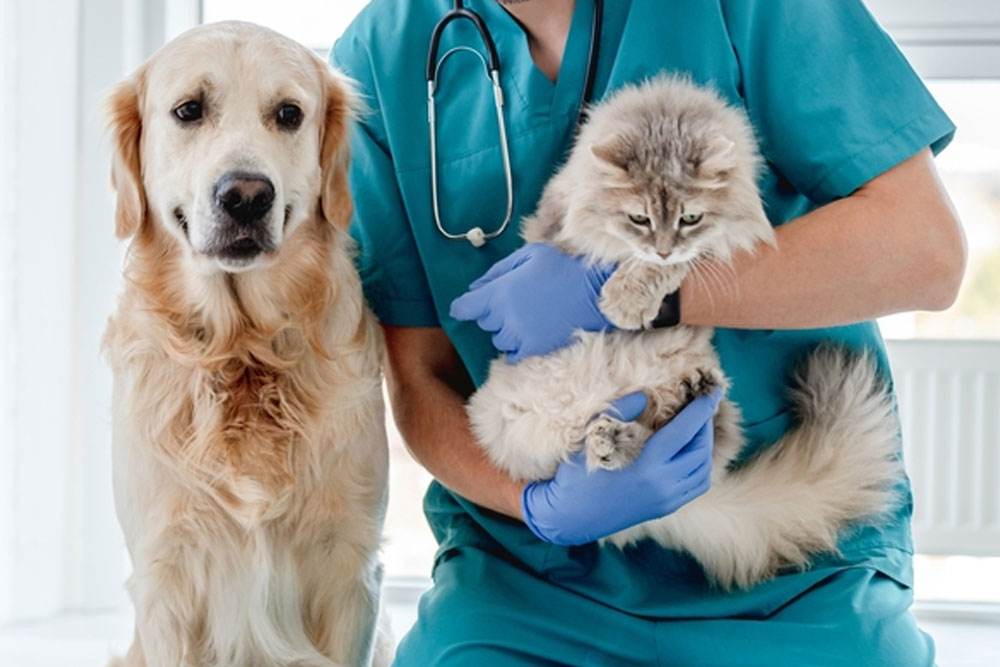
The Benefits of Wellness Exams Go Beyond Health
Better Quality of Life
Preventive care leads to early intervention, more treatment options, and a higher quality of life for your pet.
Cost Savings Over Time
Catching a problem early can mean managing it with diet or medication—rather than facing costly emergency surgery down the road.
Schedule Your Pet’s Wellness Exam Today
At Rustebakke Veterinary Service, we’re more than your pet’s healthcare provider—we’re your partner in preventive care. Whether you’re raising a playful puppy or caring for a senior companion, our experienced team is here to support every stage of your pet’s life.
Book your pet’s wellness visit today and take the first step toward proactive, compassionate care.
Visit our Request Appointment page to get started.
Additional Resources
- Importance of Wellness Exams – AVMA
- Veterinary Diagnostics – Pet Health Network
- Senior Pet Health Problems – AAHA
Your pet relies on you for love, care, and protection. Regular wellness exams are one of the best ways to return that love—with health, comfort, and peace of mind.

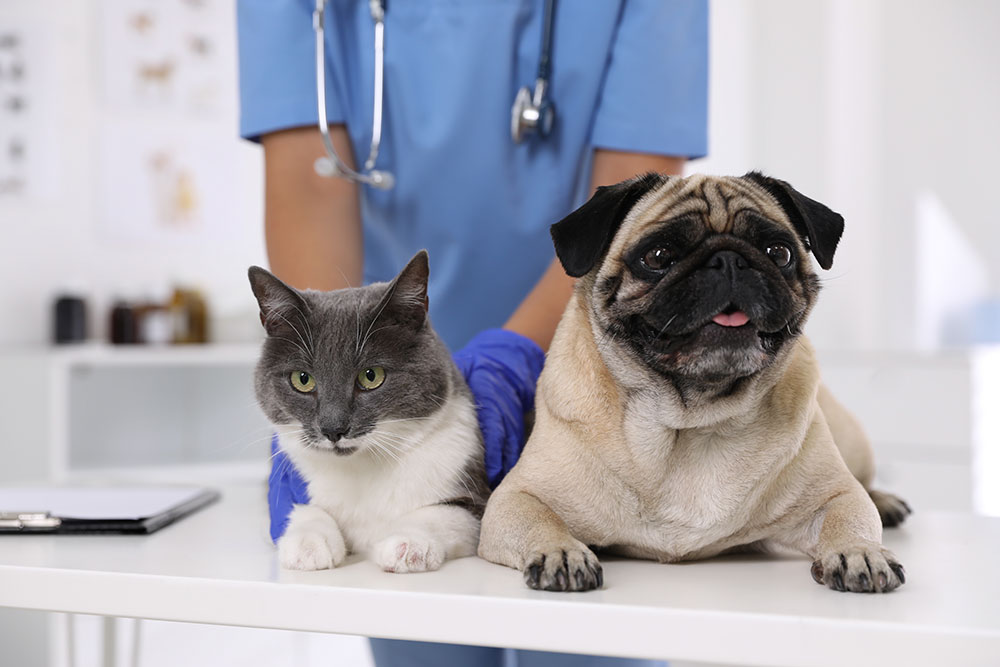
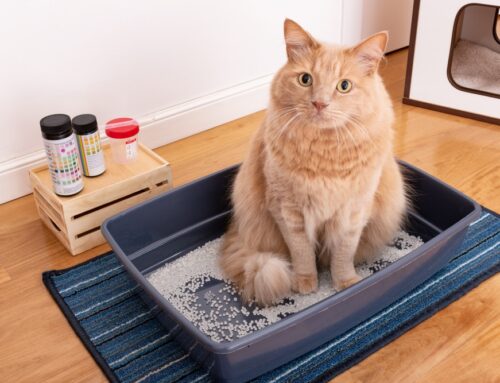

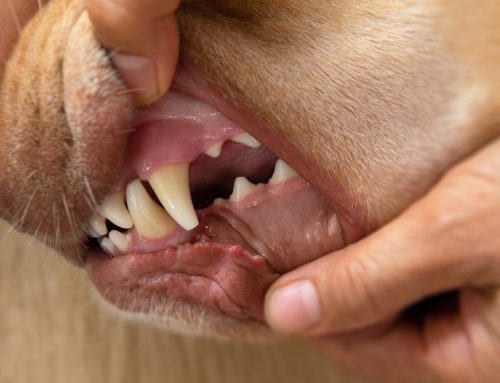
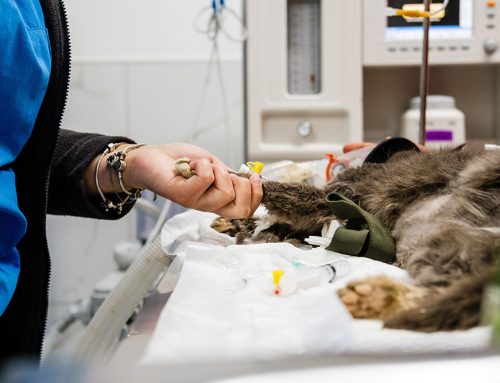



Leave A Comment